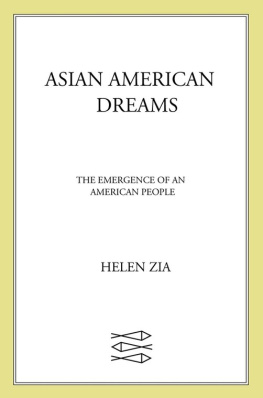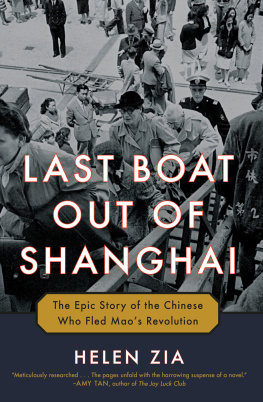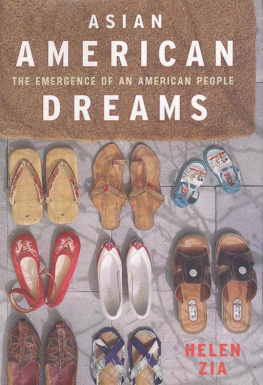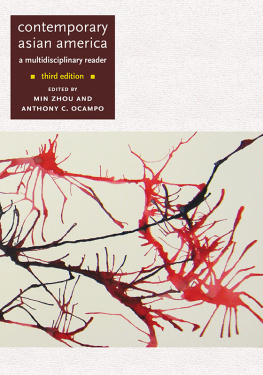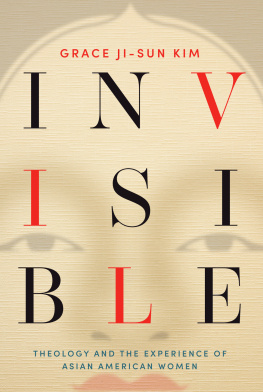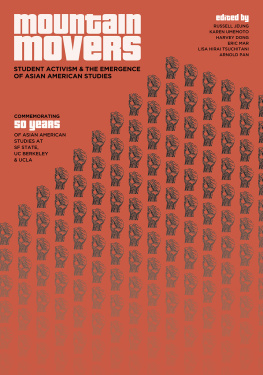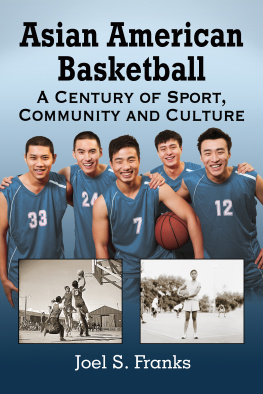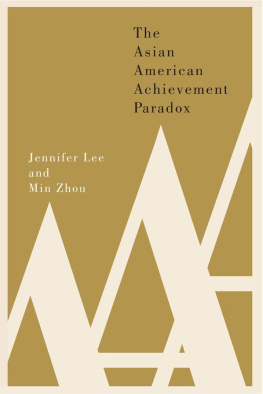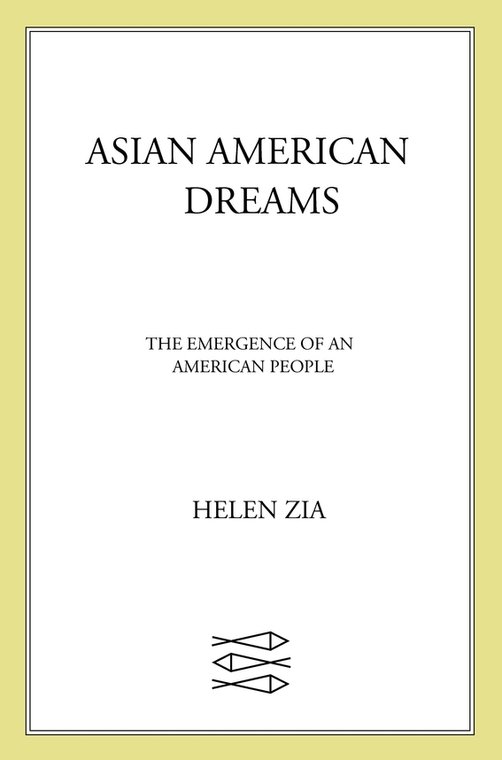I am indebted to so many who introduced me to their communities, campuses, workplaces, and friends and families, opening their souls as well as their record files to me, offering their wisdom so that I might share their tales with others. As my research took me across the country, many kind people made their homes and hospitality available, as well as their ideas and experiences. My humble thanks go to the hundreds of individuals who agreed to be interviewed for this book, unfortunately too numerous to mention here. All have my deep and heartfelt appreciation.
Colleagues from the Asian American Journalists Association helped me in innumerable ways, with suggestions, leads, enthusiasm, and, most important, friendship; in particular, Jeannie Park, Jon Funabiki, and Sandra Oshiro have never hesitated to lend their wisdom and support. My family of editors at Ms. magazine constantly inspired me; Robin Morgan long ago urged me to authorship, while Gloria Steinem, Marcia Gillespie, Mary Thom, and other present and former editors encouraged me. The Journalism and Women Symposium gave advice and counsel from its special network of journalists, writers, and editors. I was also privileged to have the feedback of June Jordan, Sandy Close, Anne Okahara, Lynne Ogawa, and Joan Lester at the early stages of developing Asian American Dreams.
This book and most of what is known about Asian Americans is rooted in the research, scholarship, and hard work of those in the field of Asian American studies, notably those affiliated with the Association of Asian American Studies. I am indebted to its members and its coordinator, Anita Affeldt. Professors Evelyn Hu-DeHart, Elaine H. Kim, Ling-chi Wang, and K. Scott Wong were especially generous with their knowledge. Wei Chi Poon, curator of the Asian American Studies Collection of the Ethnic Studies Library at the University of California at Berkeley, and Bea Dong of the Eastwind Books of Berkeley ( www.ewbb.com ), patiently advised me. Research for this book also depended on the opendoors of numerous public libraries, notably the main branch of the Oakland (California) Public Library.
The Asian American ethnic and community news media, the true chroniclers of our communities, let me rummage through their morgues. In particular I thank Dean Wong, Bob Shimabukuro, and Eric Hsu of the International Examiner in Seattle; Richard Springer of India West; Ashok Jethanandani of India Currents; Kapson Yim Lee of the Korea Times English Edition; and the archives of Asian Week.
Nanette Fok, Sandra Yoshizuka, and Donald Young of the National Asian American Telecommunications Association kindly allowed me to review tapes from NAATAs extensive catalogue of Asian American film and video; independent videographer Christopher Chow offered video recordings from his personal library. I am also grateful for the timely research assistance of Momo Chang, Tamina Davar, Carlos Gallegos, Audee Kochiyama-Holman, Ellen Okazaki, Mary Schaefer, Alethea Yip, and the law offices of Minami, Lew and Tamaki.
American Citizens for Justice co-founders James Shimoura, Roland Hwang, and Harold Leon always made themselves available when my memory dimmed on details of the Vincent Chin case. My special appreciation to Daphne Kwok and the Organization of Chinese Americans, whose doors were always open to me; Leigh-Ann Miyasato and Bob Sakiniwa, both formerly of the Japanese American Citizens League Washington office, and Patty Wada of the JACL national office; Deborah Ching with the Los Angeles Chinatown Service Center; Seattle city council member Martha Choe and her staff; and KaYing Yang of the Southeast Asia Resource Action Center. All were most generous with their time, documents, and office space. The Inland Boatmens Union of the Pacific and its regional director Richard Gurtiza paved the way for me to visit the salmon canneries of Alaska.
I am grateful to many Asian Pacific American women and men whose dedication to their communities is an inspiration. Martha Lee, the visionary founder of the Asian Pacific American Womens Leadership Institute, and its network of amazing women shared their high spirits and expertise with me. So did the many dynamic women of the National Asian Pacific American Womens Forum; at their founding conference I had the good fortune to connect with author Phoebe Eng, who took considerable time away from writing her book, Warrior Lessons, to share her insights, wisdom, and friendship with me.
Several book chapters benefited from the thoughtful readings and comments of talented writers Sally Lehrman, Teresa Moore, and Venise Wagner. Scholars Ji-Yeon Yuh, professor at Northwestern University, and Himanee Gupta, a Ph.D. candidate at the University of Hawaii, both former journalists, applied their critical analysis to certain chapters. I am also grateful to Farrar, Straus and Giroux copy editor Elaine Chubb for her thorough and meticulous review.
My siblings were my cheerleaders, advisers, and confidants; brother Hoyt and sister-in-law Leigh-Ann read some chapters; youngest siblings Humane and Haddon gave helpful input; brothers Hugo and Henry sent me love and encouragement, as did my dear friend from the Chrysler stamping plants, Robert Duiguid. During the long stretches of researching and writing, my life was full with the love and positive spirits of numerous friends, especially the support of writer and playwright Diane Yen-Mei Wong.
Amid this bounty, I am truly fortunate to have as my literary agent Sydelle Kramer, who from the start believed in what I had to say, offering consistent excellent advice and patiently helping me shape my ideas for this book.
I could never have imagined working with such a wonderful editor, Elisabeth Kallick Dyssegaard. Her enthusiasm and her unfailingly wise and good-humored guidance were a rare and special gift. As she took up the joy and indignation of these stories, at times she seemed to be turning Asian American.
My deepest gratitude belongs to my parents. My father, Yee Chen Zia, encouraged me to write from the time that I could hold a crayon. My mother, Beilin Woo Zia, with her unconditional love, imparted her special empathy and caring for others. I only wish that my father were alive to read this book and to offer his criticisms.
Most of all, I thank my life partner, Lia Shigemura, who read every word of this books many versions with good cheer and genuine excitement, adding her special insights with encouragement, understanding, and loving care.
Ablemann, Nancy, and John Lie. Blue Dreams: Korean Americans and the Los Angeles Riots . Cambridge, Mass.: Harvard University Press, 1997.
Ancheta, Angelo N. Race, Rights, and the Asian American Experience. New Brunswick, N.J.: Rutgers University Press, 1998.
Bandon, Alexandra. Asian Indian Americans. Parsippany, N.J.: New Discovery Books, 1995.
Bulosan, Carlos, et al. On Becoming Filipino: Selected Writings of Carlos Bulosan. Philadelphia: Temple University Press, 1995.
Chan, Jeffrey P., ed., et al. Aiiieeeee: An Anthology of Asian American Writers . New York: Penguin, 1997.
Chan, Sucheng. Asian Americans: An Interpretive History. Boston: Twayne Publishers, 1991.
Chan, Sucheng, ed. Hmong Means Free: Life in Laos and America. Philadelphia: Temple University Press, 1994.
Chang, Edward, ed., et al. Los Angeles Struggles toward Multiethnic Community: Asian American, African American and Latino Perspectives. Seattle: University of Washington Press, 1994.
Cheng, Lucie, and Edna Bonacich, eds. Labor Immigration Under Capitalism: Asian Workers in the United States Before World War II. Berkeley, Calif.: University of California Press, 1984.

